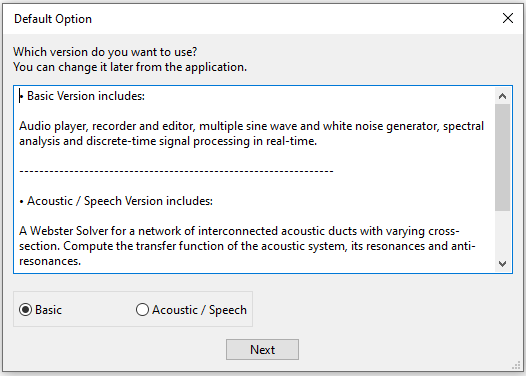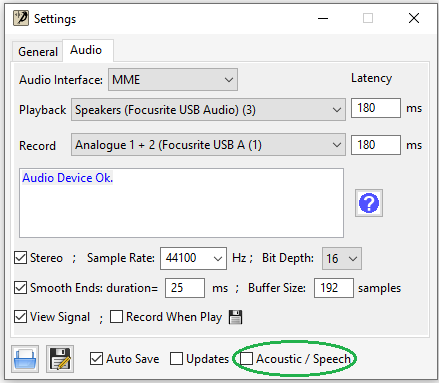Install Acwato Software
 Windows
Windows
Double click on the InstallAcwato.exe file that can be downloaded here and click on Yes button when the following dialog box appears.
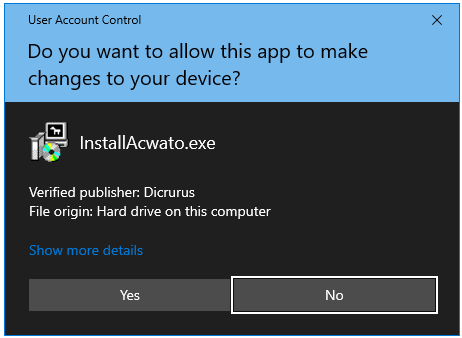
Then click on Next button in this dialog.
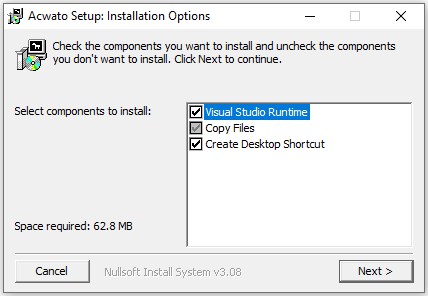
Eventually click on Install button in this last dialog.
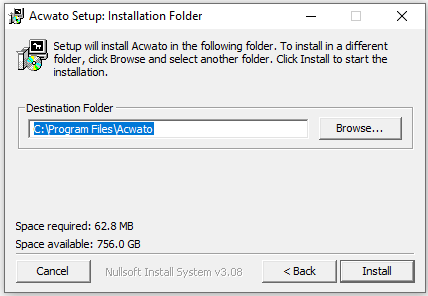
After first launch of the application, folders C:\Users\userName\AppData\Local\Acwato that contains preferences and C:\Users\userName\Documents\Acwato that contains the user files (pictures, audio...) are created.
 macOS
macOS
Double click on the InstallAcwato.dmg file that can be downloaded here and follow the instructions.
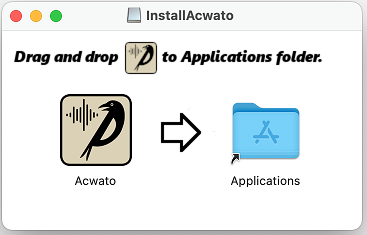
Close the dialog box and eject the InstallAcwato drive from Finder.
After first launch of the application, folders ${HOME}/Library/Acwato that contains preferences and ${HOME}/Documents/Acwato that contains the user files (pictures, audio...) are created.
⚠ On macOS, running python scripts from the application requires prior installation of python 3.10 that can be downloaded here.
 Linux
Linux
Download InstallAcwato.bin here and execute it from any folder but the user home directory. In the example below, it is in ${HOME}/install.
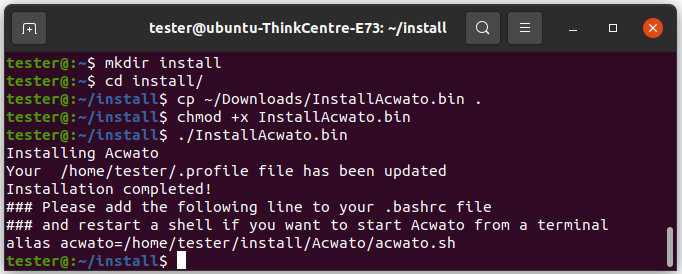
After installtion, the .profile file of the user is updated adding the bin subdirectory of the distribution to the LD_LIBRARY_PATH environment variable. This is usefull only for loading the acwato.so Python module from an external Python IDE (eg. Idle) and requires to logout and login again for beeing effective.
A file acwato.desktop is created in ${HOME}/.local/share/applications that creates an application icon allowing the user to lauch the software by clicking on that icon.
After the first launch of the application, folders ${HOME}/.acwato that contains preferences and ${HOME}/Acwato that contains the user files (pictures, audio...) are created.


